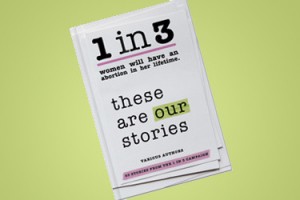 It shouldn’t take a gay son to convince a senator to support marriage equality.
It shouldn’t take a gay son to convince a senator to support marriage equality.
Like many people, I was pleased to see Rob Portman from Ohio become the first sitting Republican senator to publically state his support for marriage equality. I was relieved last year when Barack Obama finally completed his own public and self-described evolution on marriage equality, even though I think it took too long. And Hillary Clinton only just recently stated her unequivocal support for gay rights as human rights. Better late than never.
But there’s one element of the Portman story that just bugs me. He only came to this conclusion after his son, Will Portman, came out to his family and they started talking about the issue. Now, I know, this is a good news story all around, right? Honesty and trust, supportive parents, a young man who can finally say: “That was the beginning of the end of feeling ashamed about who I was.”
Here’s my problem: You shouldn’t have to rely on a child, a sibling, a friend, a neighbor, or even a stranger to convince you to support their human rights. They’re human beings. Shouldn’t that be enough?
I know. It does matter. Stories matter. On this issue and a whole host of others. There’s even a ‘contact hypothesis’ developed and studied by psychologists who convincingly argue that contact among people is one of the most effective means of reducing prejudice. Stories are a key means of contact. That’s why there are campaigns like the 1 in 3 Campaign from Advocates for Youth, which offers women a safe platform to tell their stories of choosing abortion. Humanizing these issues matters. It’s about ending stigma and replacing silence with story, replacing a nameless, faceless, other with the face and heart and life of someone that you know and love. I get it. 
And yet …
Stassa Edwards over at the Ms. Magazine blog writes about how this type of relational thinking is often used when talking to young men about rape. In response to the case in Steubenville, Ohio, where two young men have now been convicted of rape, she describes the video recording of the events:
At one point, former Steubenville baseball player Michael Nodianos says, “It isn’t really rape because you don’t know if she wanted to or not.” At another point an unidentified boy asks “What if that was your daughter?” Nodianos responds, “But she isn’t.”
Nodianos’s words are telling, because for too long we’ve been teaching our sons to think of the consequences of rape within a familial context (i.e. “Imagine if it were your wife/daughter/mother”) and it’s clear that this method of education is a complete and total failure. Boys shouldn’t be taught that only women to whom they are genetically bound are worthy of being treated as human beings because, in part, that implies those who are not family are subhuman and therefore deserving of their own victimization. Nodianos’s justifications (akin to “she never said no”) and answers might be chilling, but they’re also relatively rational responses to the phrases we repeat to boys and consider enough education.
If we say that people can only understand an issue when they know someone affected by it, we let people who haven’t heard a story or think they don’t know someone off the hook. And that’s not okay. In fact, relying on other people to educate you about their oppression is an old and dangerous tactic.
In her brilliant 1979 essay, “The Master’s Tools Will Never Dismantle The Master’s House,” Audre Lorde described how this dynamic repeats itself across lines of gender and race.
Women of today are still being called upon to stretch across the gap of male ignorance and to educate men as to our existence and our needs. This is an old and primary tool of all oppressors to keep the oppressed occupied with the master’s concerns. Now we hear that it is the task of women of Color to educate white women — in the face of tremendous resistance — as to our existence, our differences, our relative roles in our joint survival. This is a diversion of energies and a tragic repetition of racist patriarchal thought.
This seems to be the dynamic at work today in the happily-ended Portman family narrative: It remains the responsibility of gay and lesbian people to explain to their straight friends and family that, in fact, they are human beings deserving of equal protection under the law.
We should be grateful for all those who have shared their stories, and we should stop expecting that they do so.
Whatever the outcome of the Supreme Court cases being heard this week, we will really have made social and political progress in this country when we stop relying on the marginalized to justify their own inclusion in our laws and lives.
Images via Towleroad, 1in3Campaign, & Tom Goldstein at SCOTUSblog.












